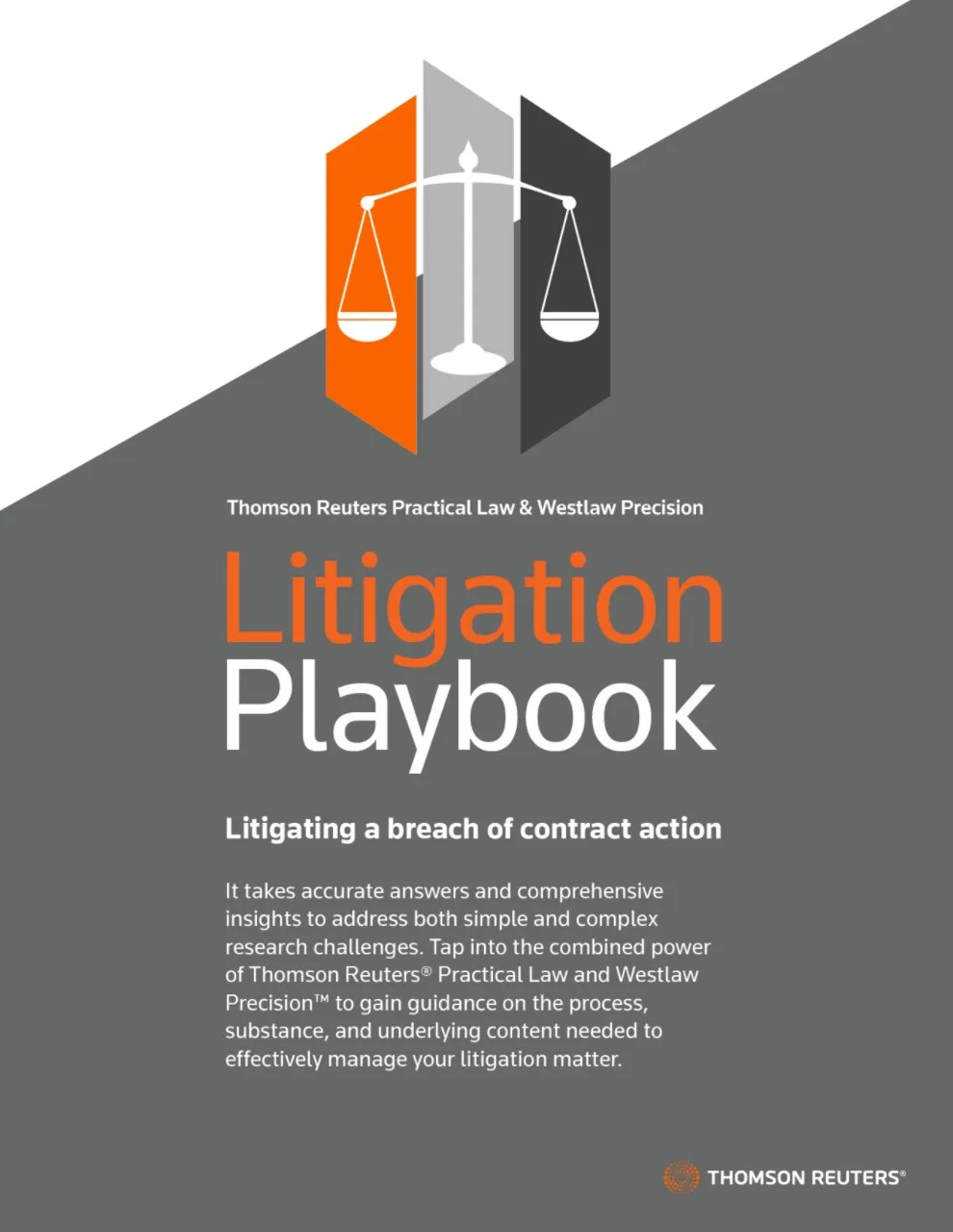The execution stage of a contract is vital, marking the final step before a contract becomes legally binding.
Legal terms • executed contract
Jump to ↓
| What is an executed contract? |
| How to execute a contract |
| Executed contract vs. executory contract vs. effective date |

CoCounsel Legal
AI lawyers swear by: Trusted content, expert insights, and an all-in-one solution with ISO/IEC 42001:2023 certification
See it in action ↗Carefully crafted contract agreements are an important part of many legal and business relationships. They often require a great deal of negotiation, revision, and review before being executed, which is the final stage before the contract lifecycle management process turns over. As such, the execution stage of a contract can require a little extra attention, and understating its nuances is a great way to help avoid unwanted headaches down the road.
Below, we will consider some of the key attributes of an effectively executed contract and parse through some of the ways business and legal pros work toward crafting and managing those contract agreements. We will also go over some important terms and definitions related to executed contracts and explore some ways these contracts can be effectively managed.
What is an executed contract?
An executed contract is the final product of a legally binding, enforceable agreement between parties. This contract “can be in the form of a written document or a verbal agreement. Once all parties have fulfilled their obligations, the contract is considered executed. This means that the terms of the contract have been completed and the parties are no longer obligated to each other.”
An executed contract does not rely simply on a signature on a piece of paper. A fully executed contract necessitates all parties have fulfilled their legal duties and the promises made to one another during the negotiation and agreement stage of the contract.
In written form, an effective contract should be clear and concise so as to ensure all parties understand the terms and conditions. Executed contracts must be signed by all parties involved and must contain the essential elements of a contract: offer, acceptance, consideration, and mutual assent.
How to execute a contract
Executing a contract is a crucial step in formalizing agreements between parties, ensuring clarity and enforceability of obligations. Whether it’s a business deal, employment agreement, or lease arrangement, understanding how to properly execute a contract is essential for safeguarding the interests of all parties involved. This section will provide a guide on the key considerations involved in executing a contract.
What are the first steps before executing a contract?
Leading up to the signing and execution of a contract, there are some important items that first need to be checked off. A close reading of the contract, including important clauses like warranties and disclaimers, is advisable.
Once reviewed, it may also be helpful to keep a copy of the document on hand for quick reference. As is the case with many legal considerations, it is also advisable to make sure all parties involved in the contract agreement have the capacity to enter into such an arrangement. Individuals compromised by, for example, illegal drugs or excessive alcohol consumption, may be found to lack capacity with respect to contract law. In such a case, that contract agreement may be considered breached.
If a promise is breached, the law provides remedies to the harmed party, often in the form of monetary damages, or in limited circumstances, in the form of specific performance of the promise made.
Additionally, is it advisable to ensure the contract is signed by the proper individuals on both sides of a pending deal and that all the conditions needed to execute the contract can be satisfied.
What are the next steps after the contract is signed?
Once signed by all relevant parties, it can be helpful to review the contract one more time to look for any glaring errors or inconsistencies. That signed and reviewed copy can then be stored in a secure location and made accessible to all parties involved. There are lots of great options for some safe, accessible, and automated solutions for contract storage.

White Paper
Smarter about Contracts: Bringing a system of intelligence to contract lifecycle management
Access white paper ↗Executed contract vs. executory contract vs. effective date
When it comes to contract law, there are a few notable terms that share some phonetic similarities while representing important legal differences. Below, we will look at two such sets: executed contracts and executory contracts; and execution dates and effective dates.
Executed contract vs. executory contract
The key difference between an executed and executory contract lies in the performance of the agreement’s terms. While an executed contract is one that has seen its terms completed, an executory contract, on the other hand, has at least some component that has not been fulfilled yet.
Executory refers to something that has not yet been fully performed or completed and is therefore considered imperfect or unassured until its full execution. Anything executory is started and not yet finished, or is in the process of being completed in order to take full effect at a future time.
Executed contracts are more common than executory contracts, as most contracts are completed once they are signed. Another key difference between an executed and executory contract is that an executed contract is legally binding while an executory one is not.
Execution date vs. effective date
Here we have another set of terms that sound similar but actually have important distinctions. Generally, the execution date is the day that all parties physically sign a contract and create a binding agreement. On the other hand, the effective date is the day that the terms of a contract become enforceable by law.
In some instances, these dates can coincide. It is also important to note the effective date may carry with it some extra important considerations with respect to the responsibilities of the parties involved. For example, when signing a lease agreement for a rental property, the effective date will be the day when the tenant is required to start paying rent.
Final words
Executed contracts carry with them the full measure of the law. They are binding and legally enforceable. Well-crafted and carefully executed contracts can help mitigate disputes between parties and can be used as a reference should any disagreements arise.
Executed contracts are an important part of the lifecycle of a contract. During the executed contract stage, it is critical all parties have a firm grasp of the components of the contract so as not to miss any vital details.
For more information, visit to learn more about how automated CLM can help ensure all stages of the contract agreement lifecycle can work for you.

Playbook
Litigating a breach of contract action: The answers you need and how to proceed when litigating a matter.
Download free playbook ↗








